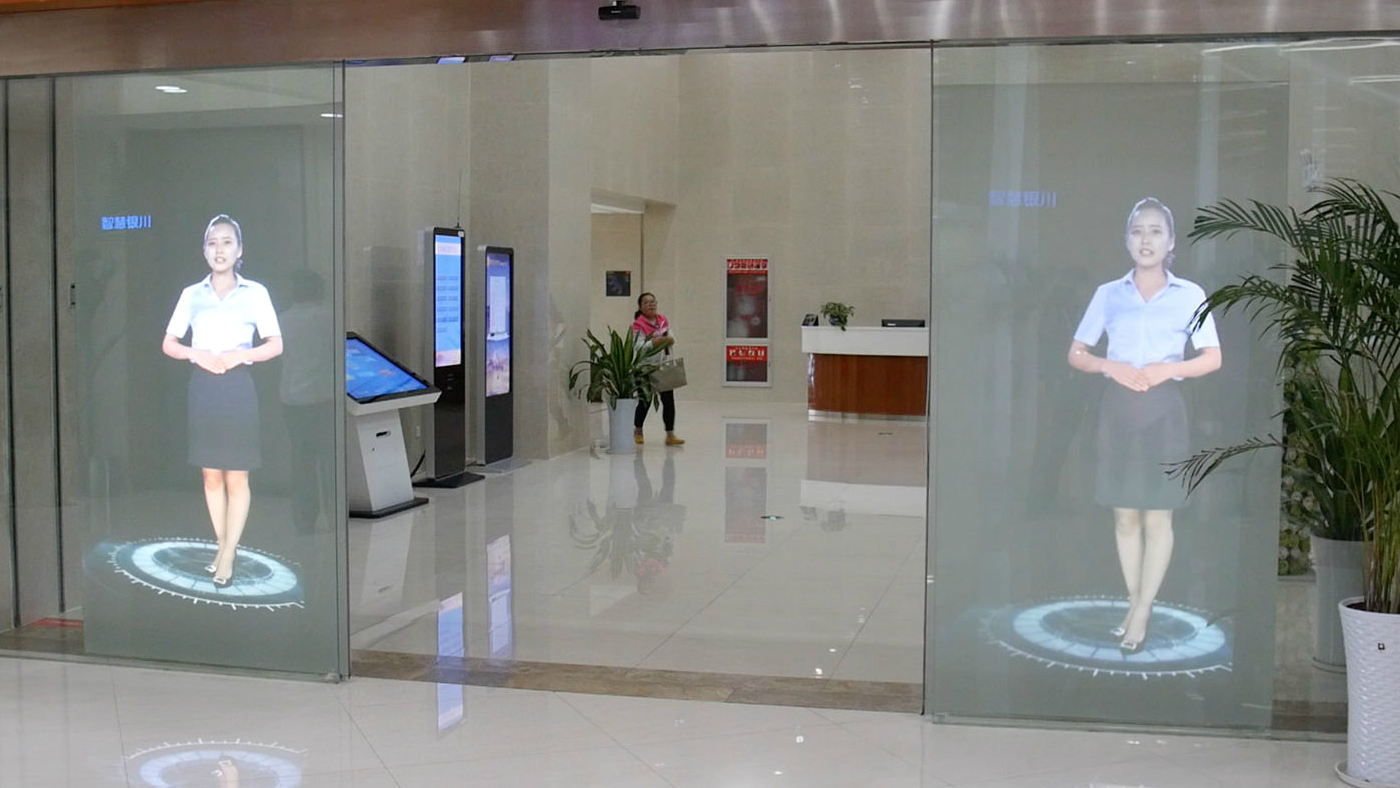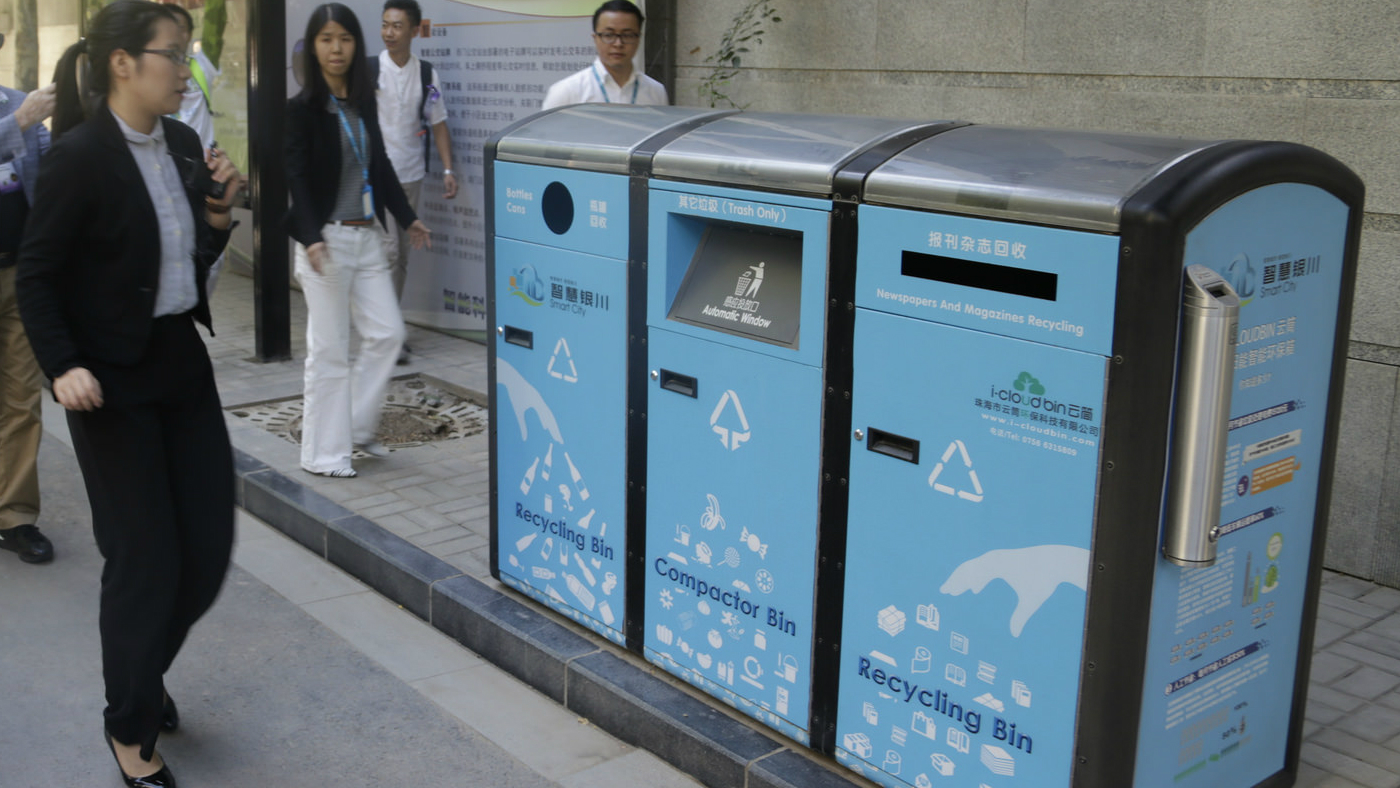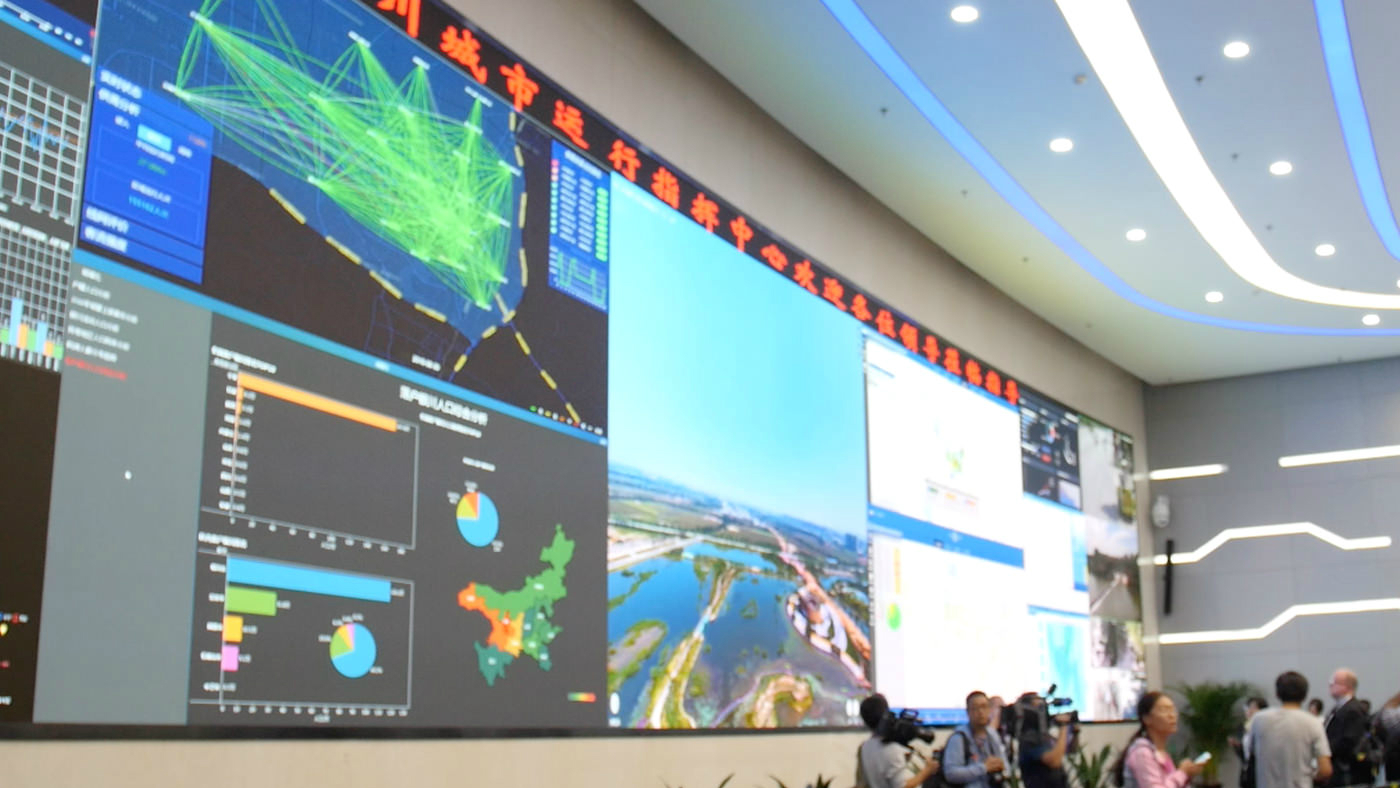Smart cities: How China is leading the world
Major global conference examines the role technology and data will play in urban areas now and in the future

A free daily email with the biggest news stories of the day – and the best features from TheWeek.com
You are now subscribed
Your newsletter sign-up was successful
By Elizabeth Carr-Ellis
By 2050, 66 per cent of the world's population will live in cities, up from 54 per cent in 2014.
It's a problem presenting major headaches to city planners around the world, from London to Dubai, New York to Tel Aviv. But surprisingly, while the cities may change, the main challenge is the same: how to make life better and easier for the people who live there.
The Week
Escape your echo chamber. Get the facts behind the news, plus analysis from multiple perspectives.

Sign up for The Week's Free Newsletters
From our morning news briefing to a weekly Good News Newsletter, get the best of The Week delivered directly to your inbox.
From our morning news briefing to a weekly Good News Newsletter, get the best of The Week delivered directly to your inbox.
This was the recurring topic of the Smart City InFocus conference in Yinchuan, China, earlier this month, where 1,000 delegates from 66 countries across six continents met to discuss possible solutions.
The choice of location was apt: Yinchuan, which lies 552 miles west of Beijing, is one of China's 200 smart cities – a city using technology and data with the aim of improving life for all who live there.
At first sight, Yinchuan appears far from a technological wonder. The historic centre of the Ningxia Hui region, it is a bustling city of two million people and a fascinating mix of old and new, high-rise office blocks sitting next to historic pagodas, fast cars jostling on the roads alongside heavy-laden bicycles.
But "this whole city is far more advanced than you would think," Carl Piva, the vice president of strategic programs at conference organiser TM Forum, tells TheWeek.co.uk.
A free daily email with the biggest news stories of the day – and the best features from TheWeek.com
Indeed, commuters travelling by bus in the city don't dig deep in their pockets for the fare but instead give the driver a friendly smile. Facial recognition technology means passengers pay via a camera.

Smart rubbish bins compact the contents and then tell officials when it's time to be emptied Credit: TM Forum
Nor do locals have to worry about missing the postman – smart lockers installed on housing estates allow residents to have their packages collected even when they're away – while rubbish is stored in connected communal bins that not only compact the contents, but use air conditioning to disperse unpleasant odours and then send an alert to the local council when it's time to be emptied.
It's all been done as part of a top-level design from the local government in partnership with the Chinese multinational telecom company ZTE.
"The Chinese government created a joint venture between the city and the private sector," says Piva. "They provided the company with the funds, enough resources and enough authority to drive through a change."
"ZTE is the solution provider," Jane Chen, the chief information officer of ZTE, tells us. "The local government had a big picture – they looked at the whole city and what it needed."
What it needed, it seems, was a high-tech city "citizen" hall, where walls of giant screens display every aspect of life in Yinchuan – from real-time images of the screens to neon pie charts and graphs breaking down the information. The images and data allow officials to redirect traffic signals when a junction gets congested, for example, or organise emergency services when an accident occurs. Similar systems can be used for public health initiatives, city administrators from "passive fire-fighting mode" to an "active precaution mode" organising action from city hall.
Speaking at the conference, Guo Baichun, the deputy mayor of Yinchuan, told delegates: "The general doesn't stay in the battlefield. He directs from the back."
Rivas says the city's focus "has always been to make it easier for their citizens".
However, what works in China – identity cards containing personal information, for example – may not be suitable elsewhere, he says: "But cities are trying to address the same problems, so you find other means to do that.".
Addressing delegates, Chen agreed: "Each city is a city, but the problems are multiple and familiar," she said.
Indeed, the speakers at Smart City InFocus identified the same issues affecting the world's urban areas: transport, health, housing and energy.
Collaboration between the various cities was essential, said Jonathan Reichental, the chief information officer for the City of Palo Alto.
"It's at the core of how we're going to build great cities for people to live in," he added.
For TM Forum president Peter Sany, the focus for smart cities is clear. "You have to start with people," he said. "Without people, I don't see the value creation."
His view was reinforced by Dr Igor Calzada, of Oxford University, who told delegates cities were not "systems of systems, systems of data, systems of algorithms"; they were "ecosystems of citizens".

A giant wall of screens presents data and images of Yinchuan's traffic Credit: TM Forum
This was echoed throughout the conference. While China has taken a top-level approach, other countries are going for bottom-up, letting the people living in the cities have their say.
In Boston, Massachusetts, for example, the grand-sounding New Urban Mechanics department, which explores how technology can strengthen the partnership between local government and residents, likes to think of itself as a "a people-centric R&D lab, focused entirely on the needs of the residents", said Nigel Jacob from the mayor's office.
Consequently, when asked to find a more innovative approach towards solving the lack of affordable housing for middle-income families in the city, "we spent lot of time talking to communities to figure out who middle income people are," he said, giving the team a valuable insight they otherwise would not have had.
Tel Aviv in Israel, meanwhile, has introduced the DigiTel Resident Card, which not only gives local people access to a personalised web page that allows them to pay bills online and receive notifications about what's happening in the city, but also supplies benefits and free access to local services, such as swimming pools during the summer.
Putting people at the centre of the smart city has been very much the focus in the UK, from smart meters saving energy for four out of five customers with them to the likes of Bristol and Milton Keynes developing city-wide smart systems where technology will enhance the lives of those living there now and in the future.
"One of the things that really hit me," said Piva, after the conference, "is the importance of not allowing technology to rule citizens, but rather to view technology as an enabler for citizen value, citizen inclusion and city sustainability.
"If we can drive the smart city movement with the citizen at heart, we can avoid being trapped by technology."